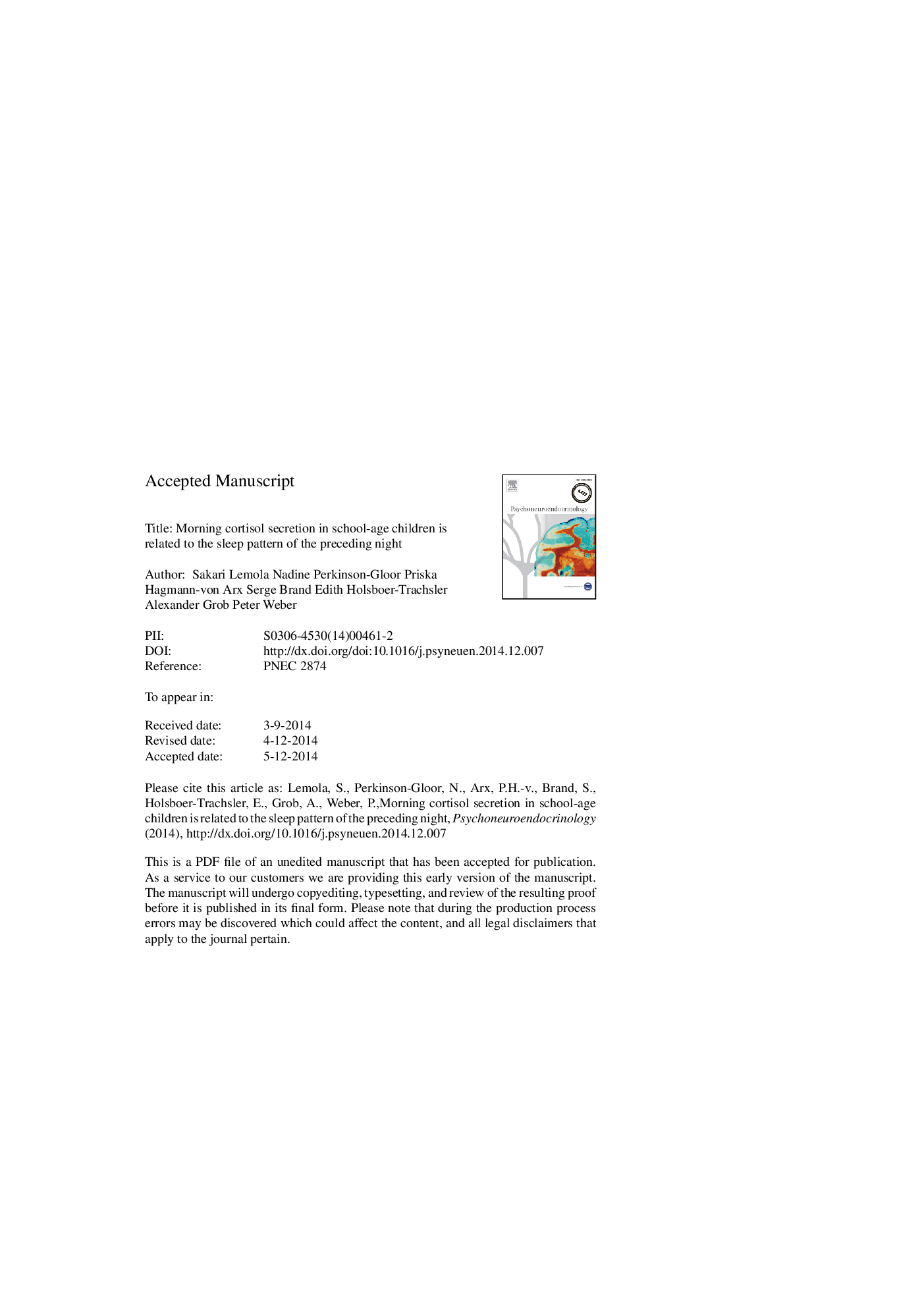| Article ID | Journal | Published Year | Pages | File Type |
|---|---|---|---|---|
| 6819341 | Psychoneuroendocrinology | 2015 | 21 Pages |
Abstract
Sleep disturbance in childhood is common and a risk factor for poor mental health. Evidence indicates that disturbed sleep is associated with altered hypothalamic-pituitary-adrenal axis (HPAA) activity. Knowledge regarding the association between HPAA-activity and objective sleep measures particularly regarding sleep architecture in school-age children is missing. Sleep-electroencephalography was administered to 113 children aged 6-10 years (including 58 children born very preterm and 55 born at term) during one night at the children's homes and sleep duration, sleep continuity, and sleep architecture were assessed. To assess the cortisol awakening response at the following morning, cortisol secretion was measured at awakening, 10, 20, and 30Â min later. Regression analyses controlling child age, gender, prematurity status, and the awakening time revealed that morning cortisol secretion was negatively associated with sleep duration and slow wave sleep and positively associated with the relative amount of Stage 2 sleep during the preceding night. In addition, morning cortisol secretion linearly increased with age. In conclusion, associations of sleep disturbance with poor mental health may be confounded with altered HPAA-activity.
Related Topics
Life Sciences
Biochemistry, Genetics and Molecular Biology
Endocrinology
Authors
Sakari Lemola, Nadine Perkinson-Gloor, Priska Hagmann-von Arx, Serge Brand, Edith Holsboer-Trachsler, Alexander Grob, Peter Weber,
